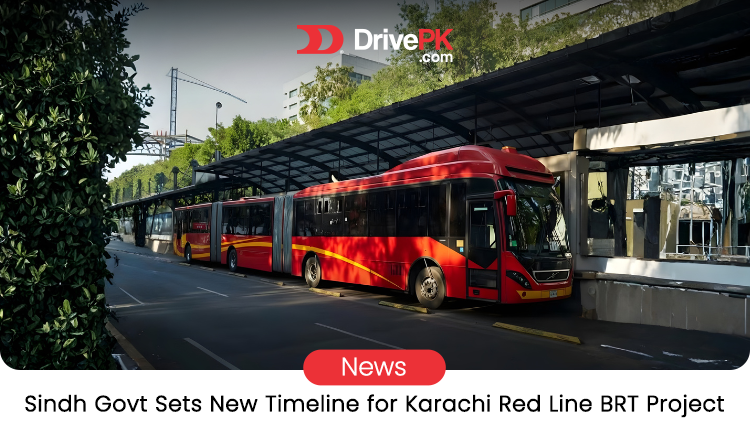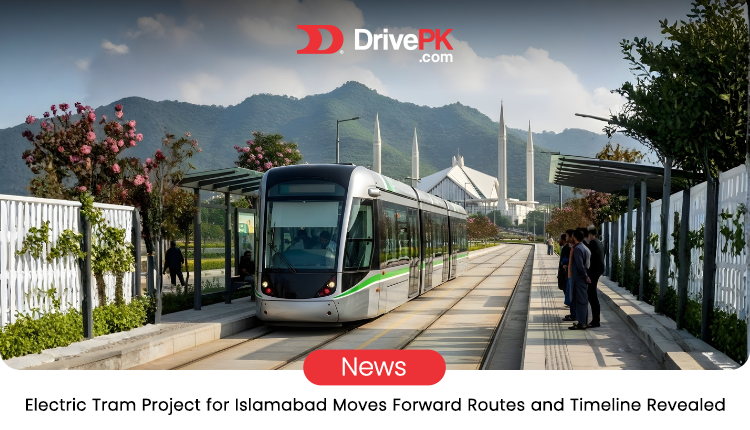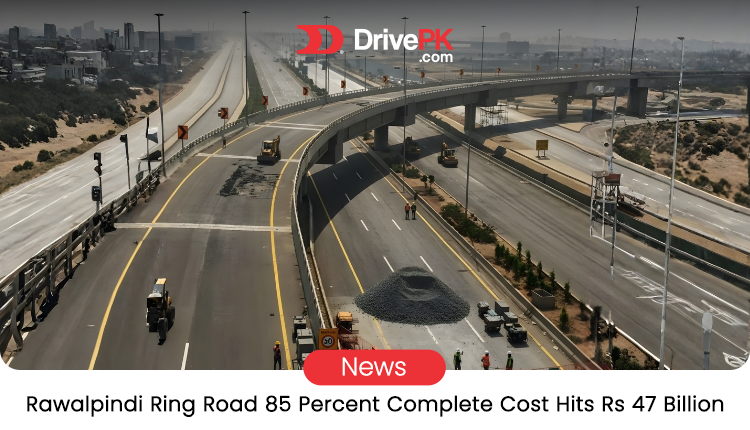End of an Era: Yamaha's Setback in Pakistan - Hidden Reasons Behind the Exit

Table of Contents
- A Storied History: Yamaha's Rollercoaster Ride in Pakistan
- From Glory Days to First Exit (1970s-2008)
- Peak Years of Yamaha Bike (2013-2019)
- Why Yamaha Said Goodbye, Unpacking the Decision
- Why so sudden?
- Deeper Market Challenges in Pakistan
- The Ripple Effects: Impact on Pakistan's Motorcycle Market
- For Riders and Loyal Fans
- Broader Market Shifts and Trends
- Economic Implications
- What's Next? Alternatives and Advice for Pakistani Riders
- Pro Tips for Buying Post-Yamaha Exit
- Conclusion
Yamaha ruled for more than fifty years not only on the road but at the heart of the Pakistani people. Why not? Their top priority was to provide quality services. Their bikers anthuests like the humming bee, but a few days ago, September 9, 2025, Yammah pulled the plug on making bikes in Pakistan.
It was shocking news for frequent travelers, as there is an emotional attachment, joy, speed, and a bit of adventure to our roads. In this blog, we will delve into Yammah's wild ride and explore existing reasons from Pakistan.
A Storied History: Yamaha's Rollercoaster Ride in Pakistan
From Glory Days to First Exit (1970s-2008)
Close your eyes, for 1970 Pakistani roads are buzzing with traffic. Cars are rare, but bikes are everywhere. They're everywhere. That's when Yamaha teamed up with a local group called Dawood to start making motorcycles. They called it Dawood Yamaha Limited. They came with the YB100, a simple feature. It cost about what a family could save up for, so it flew off the shelves in cities like Lahore and villages far out.
Then came the RX115 in the 1980s. Oh man, that one was for the speed lovers! It had a zippy engine that made kids dream of races. Yamaha bikes became a sign of trust. If you had one, folks knew you picked smart. Families rode them to school, markets, and even weddings. Yamaha had earned love all over, from truck drivers to office workers, in 1990.
However, in 2008, financial difficulties and significant changes in how bikes were manufactured led to their first departure. The factory shut down, and Yamaha bikes vanished from new showrooms. It felt like a punch to the gut for loyal riders. They had to switch to other brands or fix up old ones.
Peak Years of Yamaha Bike (2013-2019)
In 2013, the leading bike company, Yammah, ruled over the entire market. They came back on their own, without a local partner. In 2015, they opened a fresh factory in Bin Qasim, right in Karachi. Their star model? The YBR125. It was sleek, fuel-smart, and perfect for dodging traffic. Riders loved how it felt sturdy yet light, like a trusty sidekick.
Those were the golden times. Sales zoomed up. In the fiscal year 2018-19, they built 24,811 bikes more than ever before. Picture lines of shiny YBRs rolling out, headed to dealers across Punjab and Sindh. Yamaha even added fun events, like safety rides for new drivers. It felt like they were part of the family again. Young folks saved pocket money for a test ride, and dads bragged about the smooth gears. But even in the good times, shadows loomed. Prices started climbing, and a giant called Honda was grabbing more road space.
Here's a quick recap of Yammah timeline.
📜 Yamaha Pakistan Timeline
Why Yamaha Said Goodbye, Unpacking the Decision
The following are the main reasons behind Yammah's hands up!
The Official Announcement and Immediate Reasons
On September 9, 2025, Yamaha dropped the news like a quiet storm. In a short letter to dealers, they said production stops now. No more new bikes coming from the Karachi plant. But they promised to keep things fair.
Why so sudden?
Yamaha called it a "shift in business policy." That means they're rethinking how to sell here. Instead of building locally, they might import bikes or just focus on fixes for old ones. Dealers got the heads-up first, so no one was totally shocked. But for everyday folks? It hit like losing a neighborhood shop. Yamaha thanked Pakistan for the ride and said they'd support what's already out there. Smart move keeps trust alive.
Deeper Market Challenges in Pakistan
Pakistan is passing through an extreme financial crisis after General Pervez Musharraf's era (2007). Why pack up after trying so hard? It boils down to money, rivals, and a shaky economy. Back in 2015, Yamaha held 1.5% of the bike market. By 2025? Just 0.41%, with only 5,709 bikes sold against 1.3 million total. That's like going from a full classroom to one empty desk.
Prices tell the tale, too. The YBR125 started at Rs. 129,400 in 2015. Now? Rs. 471,500. Ouch! With Pakistan's money losing value fast thanks to inflation and a weak rupee, folks can't stretch that far. Add rules on imports that mess up parts supply, and costs skyrocket. Yamaha couldn't make enough bikes to keep prices low. Low sales mean high bills per bike. It's a bad loop.
Then there's Honda. They rule with 91% of sales. Their bikes, like the CD 70, are cheap and everywhere. Yamaha aimed for "premium" fancy brakes, better engines, but in a land where most need basics, that didn't click. Economic woes piled on: Fuel costs up, jobs scarce, roads rough. Even a sales bump in August 2025 (up 42% from last year) couldn't save them. Yamaha tried tweaks, but the market said no.
Check this table for the drop-off:
Year
The Ripple Effects: Impact on Pakistan's Motorcycle Market
For Riders and Loyal Fans
Think about your buddy who swears by his Yamaha. Now what? No new models means dreams of that fresh YBR fade. Yammah lovers miss the smooth ride and that special quiet engine, sharp turns. It's like your go-to coffee flavor vanishing from the store. Sure, you can fix your old bike, but the excitement of a new one.
Still, it's not all sad. Yamaha's promise on parts means your ride won't rust away. Dealers will help with tune-ups. For kids eyeing bikes, it teaches a lesson: Favorites change, but skills stick. Many will share stories online, old photos of group rides or first solo trips. That keeps the spirit rolling.
Broader Market Shifts and Trends
Zoom out, and Pakistan's bike world shakes. Yamaha's out, but others watch closely. Big companies like Microsoft have already left jobs behind. It hints at bigger rules that scare off outsiders. Sales spiked in August 2025, showing folks still need wheels. But without Yamaha, Honda might hike prices a tad.
Bright side? Space opens for homegrown brands or bikes from China. A United or Super Power could step up with fresh twists. Trends point to electric bikes, too, quieter, greener. If Pakistan fixes its money woes and eases rules, more players might join. It's a chance to build stronger roads ahead.
Economic Implications
Jobs take a hit first. The Bin Qasim factory? Dozens are out of work. That's families missing paychecks, kids skipping extras. Less rivalry could nudge prices up in the short term; fewer choices mean shops charge more. But the long run? It pushes locals to innovate. Think cheaper parts from nearby makers. Overall, it's a wake-up: A steady economy keeps good things here.
What's Next? Alternatives and Advice for Pakistani Riders
No Yamaha? No sweat, plenty of solid picks fit your wallet and needs. Here's a short list:
Honda CD 70: The everyday champ. Super cheap on gas, easy to fix. Great for school runs or market hops.
United Alpha: Steps up with cool lights and comfy seats. Not too pricey, feels modern.
Super Power Sonic: Local hero tough build, low cost. Perfect if you want value without flash.
Quick compare to the old YBR125:
Pro Tips for Buying Post-Yamaha Exit
Ready to shop? Start smart. For your current Yamaha, hit the dealer for warranty checks, peace of mind free. Hunt used YBRs on sites like PakWheels; deals pop up now. Watching the news for rule changes might bring back imports cheaply.
Test ride everything. Feel the seat, rev the engine. Ask about service spots nearby. Budget extra for helmet and locks, safety first! If electric calls, peek at new models. You're the boss of your ride.
Conclusion
Yamaha's exit from Pakistan wraps a tale of thrills and tough calls. From YB100 street stars to YBR125 comebacks, they added spark to our rides. But sky-high prices, fierce rivals like Honda, and economic bumps proved too much. It's bittersweet like saying see you later to a camp friend. Looking ahead, it nudges Pakistan to smooth the path for more bike magic. Stronger rules could lure back global names or boost local ones. For you riders? Cherish the memories, grab a fresh alternative, and keep exploring roads. Yammah ruled over hearts and left an awesome legacy. Spare parts will be available with a warranty, and the authorized workshop will continue its services.
Got Yamaha stories? Drop them in the comments below
Tags
Share this article
About the Author
Najeeb ullah Khan
Automotive enthusiast and writer
Comments (0)
Login Required
You need to be logged in to comment on this article.
No comments yet. Be the first to share your thoughts!
Related Articles

Karachi Red Line BRT Project Update 2026: Sharjeel Inam Memon Shares Timeline and Challenges
Sharjeel Inam Memon updated on the Red Line BRT in Karachi. The project could need another 18 months to complete after facing big challenges. Side roads will be ready before Eid. Key work on University Road finishes soon. Efforts continue to clear bus import hurdles

Islamabad Electric Tram Service 2026: CDA Starts Feasibility Study for New Routes
Capital Development Authority has begun work on an electric tram service in Islamabad. The move follows direct orders from the federal interior minister. The feasibility study must finish in three months. Routes planned from Islamabad Airport and Rawat to Lake View Park. The system will be fully cashless.

Thalian Interchange Work Starts Next Week on Rawalpindi Ring Road, Cost Now Rs 47 Billion
Work on the Rs 5 billion Thalian Interchange of the Rawalpindi Ring Road starts next week. The divisional administration will acquire 358 extra kanals near the motorway, raising the total project cost to Rs 47 billion. More than 85% of the road is already finished. Bookings for toll and e-tags are expected to follow the Lahore model at Rs 80 per vehicle.